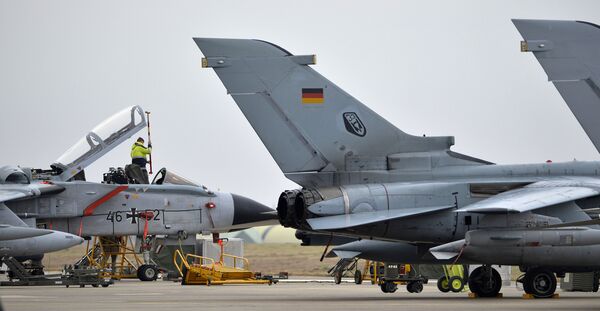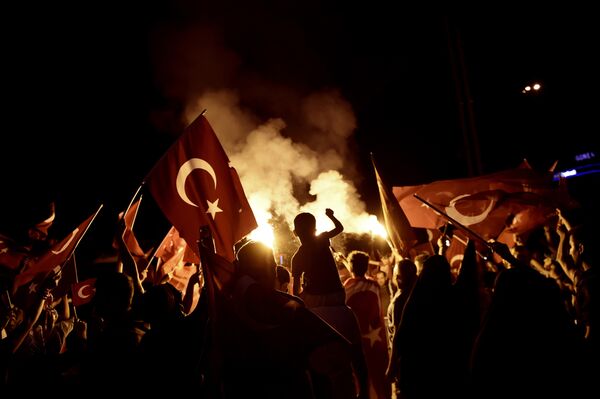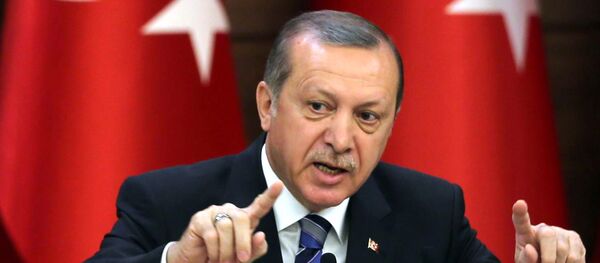"Turkey has been a NATO member since 1952. This complicates the picture because the SCO actually came into existence mainly as a geopolitical response to NATO rather than the EU. In this regard I don't think that under the current circumstances Russia and China would be willing to accept Turkey as a full SCO member unless Ankara freezes its current links with NATO," he observed.

Erdogan made his remarks on Sunday, juxtaposing the SCO and the European Union. "Turkey should first of all feel relaxed about the EU and not be fixated" on joining the organization, he said. "Some may criticize me but I express my opinion. For example, I have said 'why shouldn't Turkey be in the Shanghai 5?'" the president asked, referring to the SCO.
Dr. Emre Ersen, associate professor at Marmara University's Department of Political Science and International Relations, noted that these blocs should not be viewed as "alternative".
"Although Turkey currently has numerous problems with the European Union, I think we should firstly emphasize that the Shanghai Cooperation Organization (SCO) is not a political or economic union. It is a platform where the security concerns are discussed on a collective basis. It is mainly led by the security dialogue between Russia and China. Therefore, it can't really offer a viable alternative to the EU in Turkish foreign policy," he explained.
Turkey's relations with the Shanghai Cooperation Organization are already close. Ankara has been a dialogue partner of the organization since 2013. In fact, Turkey is the only NATO country which has "a clear institutional relationship" with the SCO, as the analyst put it, adding that it is often viewed as "a bridge between the two rival organizations."
The real appeal of the Eurasian organization for Ankara "comes from the fact that Turkey has recently developed very close political and economic relations with Russia, but also other [SCO members] such as China and India," the analyst noted. In addition, Turkey has good relations with Central Asian nations that are part of the SCO, namely Kazakhstan, Kyrgyzstan and Uzbekistan.
Furthermore, Turkey "wants to follow a more independent path in its foreign policy" which will see its leadership maintain ties with the European Union and NATO, but also pursue cooperation with the SCO.

To an extent this could be explained by Ankara's strained relations with Brussels due to the unsuccessful putsch, the refugee crisis and Turkey's stalled EU membership process.
For its part, Russia was quick in voicing its support for the Turkish leadership at a time when Ankara and Istanbul were in turmoil.
Turkey is important to the SCO because "it is one of the main political and economic players in Eurasia," the analyst said. The organization could well view a shift in Turkey's foreign policy towards greater engagement with Moscow and Beijing as "a very significant achievement."



